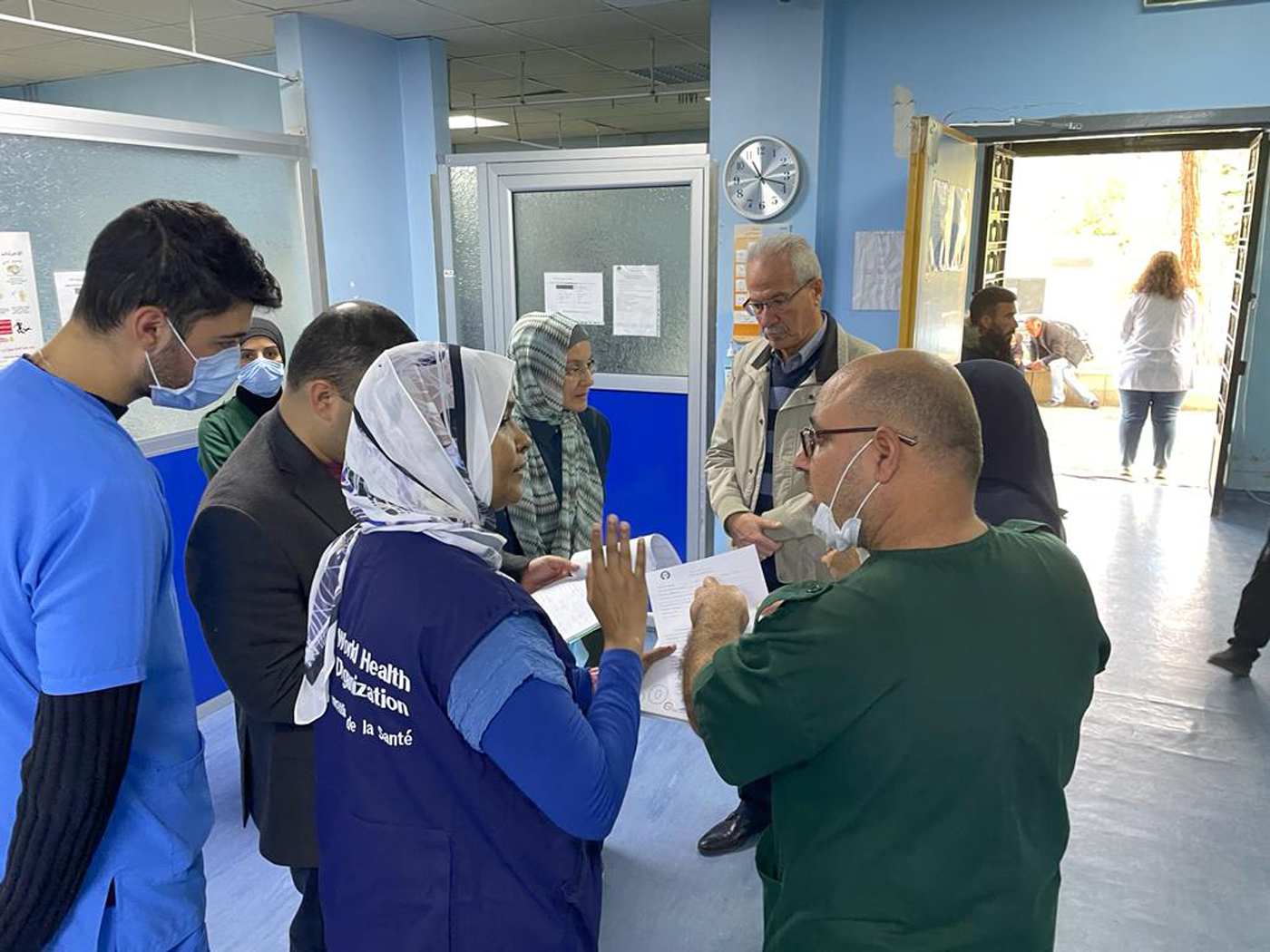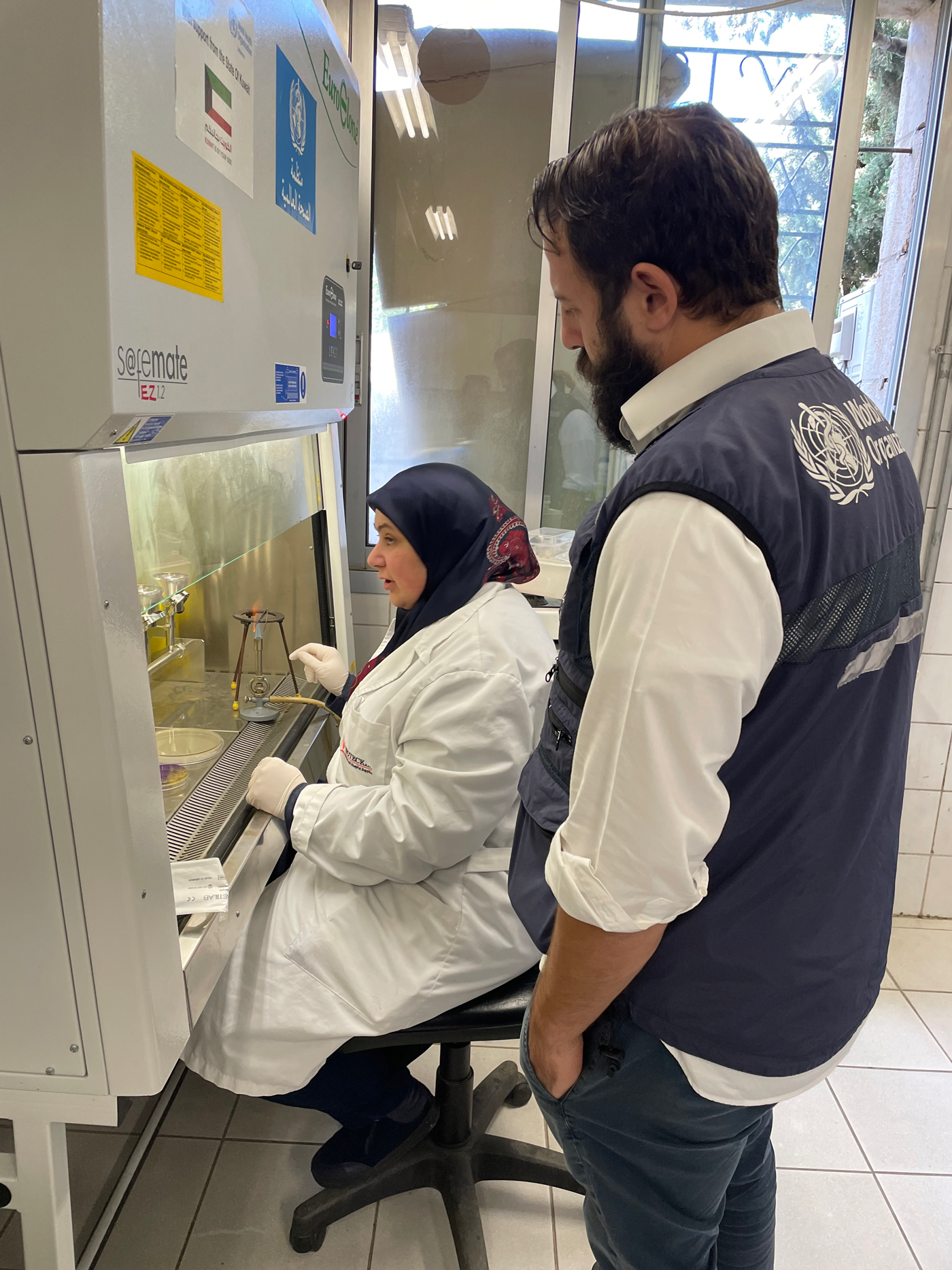 WHO mission members organized field visits to support the cholera surveillance system in Lebanon
WHO mission members organized field visits to support the cholera surveillance system in Lebanon
Cairo, 6 December 2022 – The WHO Regional Office for the Eastern Mediterranean recently conducted a technical mission to support the WHO country office in Lebanon and the Lebanese Ministry of Public Health in responding to the ongoing cholera outbreak.
The mission aimed to support the country in strengthening cholera epidemiological surveillance to better monitor the outbreak trend and direct cholera response interventions.
Mission members examined the cholera epidemiological surveillance system to identify strengths and gaps. In addition, they reviewed data collection tools, mainly the cholera line list, and reporting forms and ensured that all the information needed for cholera line listing was well captured.
To identify the gaps in surveillance systems, mission members met with different stakeholders and organized field visits to 7 out of the 12 designated cholera treatment centres in different hospitals. They also visited Humedica and the International Orthodox Christian Charities nongovernmental organizations who are supporting the cholera response.
During the visits, cholera treatment centres collected data on cholera cases and some directly reported the data to the District Health Information Software-2 (DHIS2). All hospitals trained staff on DHIS2 and were backed up by epidemiological surveillance unit staff at the governorate level.
 Mission members provided their support to respond to the cholera outbreak in Lebanon
Mission members provided their support to respond to the cholera outbreak in Lebanon
Humedica and International Orthodox Christian Charities are also contributing to cholera alert investigation, collecting data on suspected cases and reporting them to the epidemiological surveillance unit. However, the surveillance system needs to be strengthened to capture all suspected and confirmed cases to monitor the outbreak trend and guide response activities.
Mission members recommended that the cholera case definition and samples testing strategy should be updated and communicated to all health facilities. In addition, health facilities need to be supported in data collection and timely reporting to the DHIS2.
The cholera alert investigation process needs to better coordinated at the governorate level, with more roles given to surveillance staff at the governorate level. A clear alert investigation pathway should also be developed and shared with all partners at the subnational level.
In addition, regular supervisory visits to health facilities, especially all of the 12 designated cholera treatment centres, should be conducted to provide training and enhance data collection and reporting. There is also a need to invest in data analysis to better describe the affected population and match it with water testing results.
This mission is part of the WHO Regional Office’s ongoing support to the Ministry of Public Health in responding to and enhancing the different response pillars to the ongoing cholera outbreak. WHO will continue its support to Lebanon and ensure that mission recommendations are implemented to improve cholera surveillance in the country.
Related links
WHO Regional Director’s statement on cholera outbreaks
WHO warns of deadly cholera outbreak in Lebanon as cases increase


